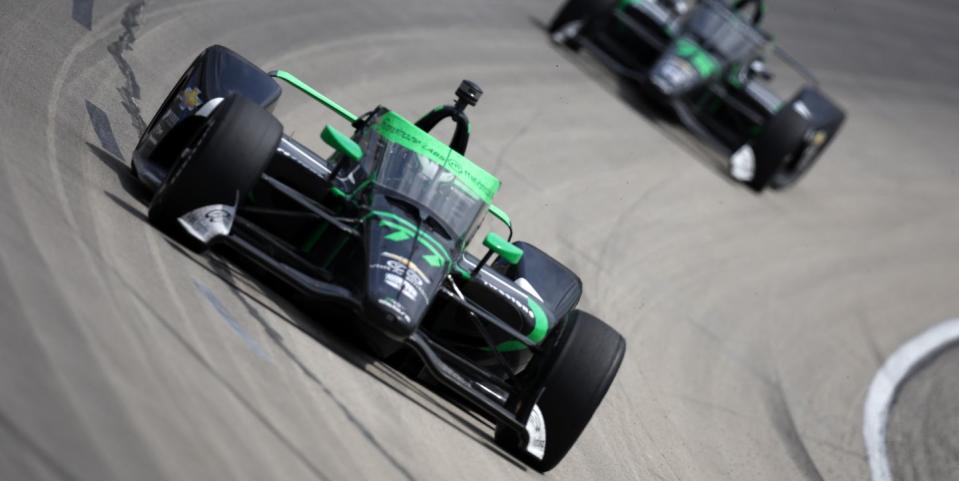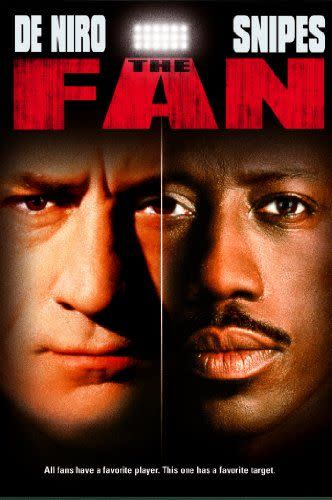Unruly Fan Behavior, Even Death Threats, on Social Media have IndyCar Racers' Attention

"Hearst Magazines and Yahoo may earn commission or revenue on some items through these links."
Earlier this week, The Associated Press posted a column on IndyCar drivers getting blasted by fans on social media for on-track incidents that may have involved some of their favorite drivers.
The most recent trigger for some fans was Sunday’s Long Beach Grand Prix incident between Juncos Hollinger teammates Callum Ilott and Augustin Canapino, where some believe the British native Ilott's actions coming out of the pits ultimately led to Canapino hitting the wall trying to avoid contact.
The next thing you know, it was crash-boom-bang and Canapino’s day was over, two-thirds of the way through the 85-lap event.
Now, we all know that racing fans are among the most passionate fans in all forms of sport. They follow their drivers with a fervency rarely matched in other athletic events, particularly stick-and-ball sports.
While IndyCar unquestionably needs (and deserves) more attention—particularly positive attention—from the overall world of sport and sports fans, the racing series does not need ugliness, particularly death threats, which Ilott reportedly received several after the incident with his teammate.
I mean, come on people, this is a R-A-C-E, and that is all it is. It is NOT a life-and-death instance, certainly nothing calling for a death threat. Unfortunately, with the sheer anonymity social media provides, anyone with a computer or even just a cell phone can feel emboldened to type whatever they want.
Like golf, auto racing has oftentimes been called a “gentleman’s sport,” and understandably so. It’s not like soccer, where riots and yes, sadly, deaths of fans simply because of who they cheer for or the supportive colors they wear, are all too common around the world.
But this is the good old U.S. of A. We’re supposed to be better and classier, an example to the rest of the world, and certainly not folks who throw around threats that they’re going to kill an athlete simply because he did something egregious—and more than likely, accidentally—against another fan’s favorite driver.
While 99.9% of those death threats are idle, off-the-cuff remarks due to a fan’s passion for the sport and “my driver,” and they’re usually just meaningless words, unfortunately we live in a society today where it takes just one whacko who takes those threats all the way to fulfillment.

The Fan
$3.99
amazon.com
I think back to a movie, “The Fan,”that starred Robert De Niro and Wesley Snipes, released back in 1996.
It tells the story of an obsessed baseball fan (De Niro) and the arrogant Bobby Bonds-like baseball all-star (Snipes). A psychological thriller, De Niro devolves from just a dedicated fan into a stone-cold killer, with both Snipes and his young son as his targets, all because Snipes didn’t play ball, perform or measure up the way his most loyal fan wanted him to do.
I’ll be honest, an obsessed fan attacking a driver or player has long been one of my biggest fears in over 30 years as a sportswriter. Racing series—particularly NHRA, which offers near-unfettered access to fans—take pride in opening the pits or at the very least, offering numerous opportunities for drivers and their fans to mingle, be it at autograph sessions, along pit road, walking from their motor homes to the garage, etc.
It would take just one person to conceal a gun or knife or some other weapon of death and we’d quickly lose a driver or maybe a team engineer or crew member, all because of something they did.
Can you imagine the horror if a race fan who didn’t agree with an IndyCar rule or was ticked off at how the Indianapolis 500 played out, attacked octogenarian Roger Penske or drivers like Scott Dixon, Will Power or virtually any other racer?
Ilott got a lot of heat from those in Canapino’s native land of Argentina, including a rabid broadcaster who eventually apologized for his overexuberance:
A certain level of professionalism is needed when you hold a microphone that sends a message to 100k+ people. I suggest you think about the message you want to send to people. I suggest you educate yourself on Indycar racing and commentating to a better standard. Be kind please. https://t.co/QJ9HCT0uhH
— Callum Ilott (@callum_ilott) April 17, 2023
In an almost unheard of instance, IndyCar was forced to remind fans “there is no place for this behavior in our sport.”
— NTT INDYCAR SERIES (@IndyCar) April 18, 2023
To his credit, Canapino stood up to the cyber bullies and essentially inferred to whack jobs who want to support him and cheer for him while also holding thoughts of death against opponents, he doesn’t want them as his fans. Bravo to him for saying that.
🇪🇸 Quiero sumarme al comunicado enviado por @IndyCar y dejar un claro mensaje
•
🇬🇧 I want to support the @IndyCar statement and take a clear message pic.twitter.com/Lo13s2wBPD— Agustín Canapino 🇦🇷 (@AgustinCanapino) April 18, 2023
But perhaps the most introspective comment came from Pato O’Ward, who was involved in an incident with Scott Dixon at Long Beach and said he would not apologize for his aggressive driving or the contact between the two cars that ultimately left Dixon with a last-place finish in the 27-car field.
I get it. That’s O’Ward’s M.O. of not apologizing if he feels he’s in the right (which is at best questionable in this case, but I digress).
Still, O’Ward had a most poignant observation about the whole Ilott-Canapino situation:
“We are all human and to judge us as anything OTHER than that is absolutely mindblowing to me,” O’Ward said in a tweet from his personal Twitter account. “As if we are not allowed to make mistakes? To drop the ball? To make a bad call? In what world are those standards reasonable? They aren’t. And they never will be. I encourage everyone to choose their words wisely, and to seriously consider the damage they are capable of inflicting before speaking them.”
Sincerely, PO ❤️ pic.twitter.com/BRYW13NZ0N
— Pato O'Ward (@PatricioOWard) April 18, 2023
This isn’t just an IndyCar problem or issue. It’s almost an every-week occurrence in Formula 1, mainly because of its global footprint and the billions of F1 fans there are across the world. If Lewis Hamilton had a dollar for all the insults and death threats he’s received over the years, he could have retired a decade ago.
No, we see threats and fans acting badly in virtually every sport there is. We see parents punch out umpires at kids’ baseball games, not to mention parents attacking other parents from the opposing team (and some of those have resulted in deaths).
Just this week we saw an Illinois high school wrestler shake hands with and then sucker punch and knock out a rival who beat him fair and square in a match (criminal charges are being considered for the attack).
These are games, folks, GAMES … or in IndyCar’s situation, RACES.
They are not life-and-death. They are supposed to be a distraction from everyday life, giving us a few hours of enjoyment, to be able to forget about things like high prices in the grocery store, high gasoline prices at the pump, high crime rates, political in-fighting and the like.
Follow Autoweek contributor Jerry Bonkowski on Twitter @JerryBonkowski

 Yahoo Autos
Yahoo Autos 